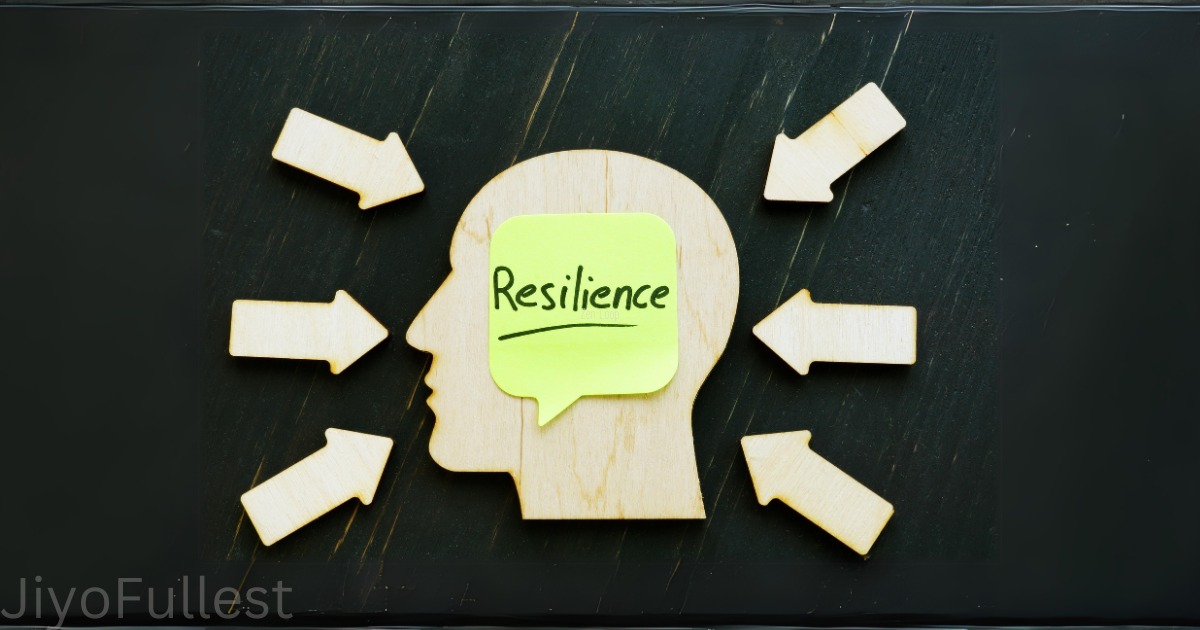Resilience is a fundamental aspect of human nature that enables individuals to navigate through life’s challenges with strength and adaptability. It is the ability to bounce back from adversity, setbacks, and difficult situations, emerging stronger and more capable than before. In this blog, we delve into the concept of resilience, its importance in personal growth and development, and practical ways to enhance this vital trait.
Table of Contents
ToggleUnderstanding Resilience
Resilience is the ability to adapt and bounce back in the face of adversity, trauma, or stress. It involves coping effectively with challenges, setbacks, and hardships, and maintaining a sense of hope and optimism despite difficult circumstances.
Resilience goes beyond mere toughness or endurance; it encompasses a mindset and set of skills that allow individuals to thrive in the face of adversity. At its core, resilience involves:
- Adaptability: The capacity to adjust and respond effectively to change, uncertainty, and unexpected circumstances.
- Emotional Regulation: The ability to manage emotions constructively, staying calm under pressure, and avoiding being overwhelmed by negative emotions.
- Problem-Solving: A proactive approach to solving problems and finding solutions, even in challenging situations.
- Social Support: Drawing strength from relationships and support networks, seeking help when needed, and offering support to others.
The Importance of Bouncing Back
- Enhanced Mental Health: Resilience plays a crucial role in promoting mental well-being by reducing stress, anxiety, and depression. Individuals with higher resilience levels are better equipped to cope with life’s ups and downs, maintaining a positive outlook and emotional balance.
- Improved Relationships: Resilient individuals tend to have healthier relationships, as they can navigate conflicts, setbacks, and misunderstandings more effectively. They are also more empathetic and supportive towards others.
- Professional Success: In the workplace, resilience is a valuable asset. It enables employees to adapt to changes, handle work pressures, and bounce back from failures or setbacks, contributing to productivity and career advancement.
- Personal Growth: Adversity is often a catalyst for personal growth and self-discovery. Building resilience allows individuals to turn challenges into opportunities for learning, self-improvement, and resilience building.
Strategies for Building Resilience
- Cultivate a Positive Mindset: Focus on strengths, opportunities, and solutions rather than dwelling on problems or setbacks. Practice gratitude and optimism.
- Develop Coping Skills: Learn and practice effective coping strategies such as mindfulness, deep breathing exercises, and relaxation techniques.
- Build Support Networks: Surround yourself with positive and supportive relationships. Seek help and guidance from friends, family, mentors, or support groups.
- Set Realistic Goals: Break down larger goals into manageable steps. Celebrate small victories and progress along the way.
- Embrace Failure as a Learning Opportunity: View failures and setbacks as opportunities for growth and learning. Analyze what went wrong, learn from mistakes, and adjust your approach.
- Take Care of Your Physical Health: Regular exercise, healthy eating, adequate sleep, and self-care practices contribute to overall well-being and resilience.
Resilience vs Resiliency
“Resilience” and “resiliency” are two forms of the same word, and they both convey the same fundamental meaning. The distinction between the two primarily lies in their usage and regional preferences rather than in their core definition.
Resilience: This is the more common form of the word, particularly in British English and in formal contexts.
Resiliency: This form is more commonly used in American English, though it is less prevalent overall compared to “resilience.”
Both terms refer to the ability to recover quickly from difficulties or toughness in the face of adversity. They are often used interchangeably in discussions about psychology, ecology, engineering, and other fields where the concept of bouncing back from challenges is pertinent. Ultimately, whether you use “resilience” or “resiliency” depends on your personal preference or the style guide you are following.
Conclusion
In conclusion, resilience is a vital life skill that empowers individuals to thrive in the face of adversity, bounce back from setbacks, and lead fulfilling lives. By understanding the concept of resilience, recognizing its importance, and implementing strategies to build resilience, individuals can cultivate inner strength, emotional well-being, and a positive outlook on life. Embracing resilience not only enhances personal growth but also fosters stronger relationships, professional success, and a resilient mindset that can weather life’s challenges with grace and resilience.
Frequently Asked Questions on Resilience
What is resilience?
Resilience refers to the ability to bounce back from adversity, challenges, and setbacks. It involves adapting positively to difficult situations and maintaining a sense of well-being despite facing stress or adversity.
Why is resilience important?
Resilience is crucial for several reasons:
- It helps individuals cope with stress, trauma, and unexpected life events.
- It promotes mental and emotional well-being, reducing the risk of anxiety, depression, and burnout.
- Resilient individuals are better equipped to handle changes, uncertainties, and challenges in various aspects of life, including work, relationships, and personal goals.
How can I build resilience?
Building resilience involves developing skills and adopting strategies to cope effectively with adversity. Some ways to build resilience include:
- Cultivating a positive mindset and practicing optimism.
- Developing problem-solving and coping skills.
- Building strong social support networks and seeking help when needed.
- Taking care of physical health through regular exercise, healthy eating, and adequate sleep.
- Embracing failures as learning opportunities and maintaining a sense of gratitude and perspective.
- What are the benefits of resilience?
- Resilience offers numerous benefits, including:
- Enhanced mental and emotional well-being.
- Improved ability to manage stress and overcome challenges.
- Stronger relationships and social connections.
- Increased self-confidence and sense of empowerment.
- Greater adaptability and flexibility in navigating life’s ups and downs.
Can resilience be learned or developed?
Yes, resilience is a skill that can be learned and strengthened over time. By practicing resilience-building strategies, seeking support, and fostering a positive mindset, individuals can enhance their resilience and ability to cope with adversity.
What role does resilience play in mental health?
Resilience plays a significant role in promoting mental health by:
- Helping individuals cope with stress, trauma, and emotional challenges.
- Reducing the risk of developing mental health disorders such as anxiety and depression.
- Improving emotional regulation and coping skills.
- Encouraging a positive outlook and sense of purpose.
How can I teach resilience to children or adolescents?
Teaching resilience to young people involves:
- Encouraging problem-solving and coping skills.
- Fostering a supportive and nurturing environment.
- Modeling resilience through your own actions and attitudes.
- Providing opportunities for learning from failures and setbacks.
- Teaching the importance of self-care, positive relationships, and seeking help when needed.
What is Resilience Synonym?
Synonyms for resilience include:
- Adaptability
- Toughness
- Flexibility
- Endurance
- Strength
- Fortitude
- Robustness
- Tenacity
- Stamina
- Persistence
What is Resilience Antonym?
Antonyms for resilience include:
- Fragility
- Vulnerability
- Weakness
- Sensitivity
- Instability
- Inflexibility
- Brittleness
- Susceptibility
- Fragility
- Frailty

